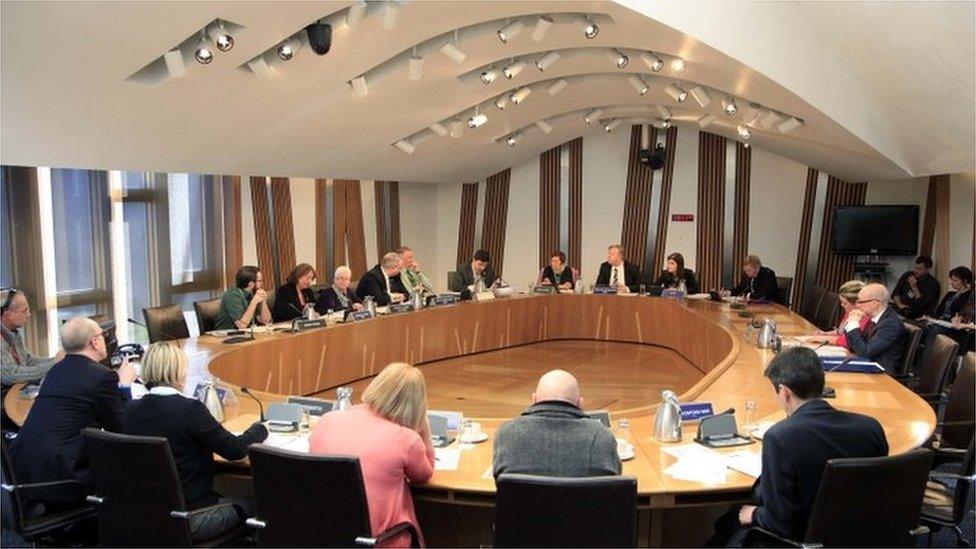Scotland's fishing sector could be world leaders post-Brexit, MSPs told
- Published
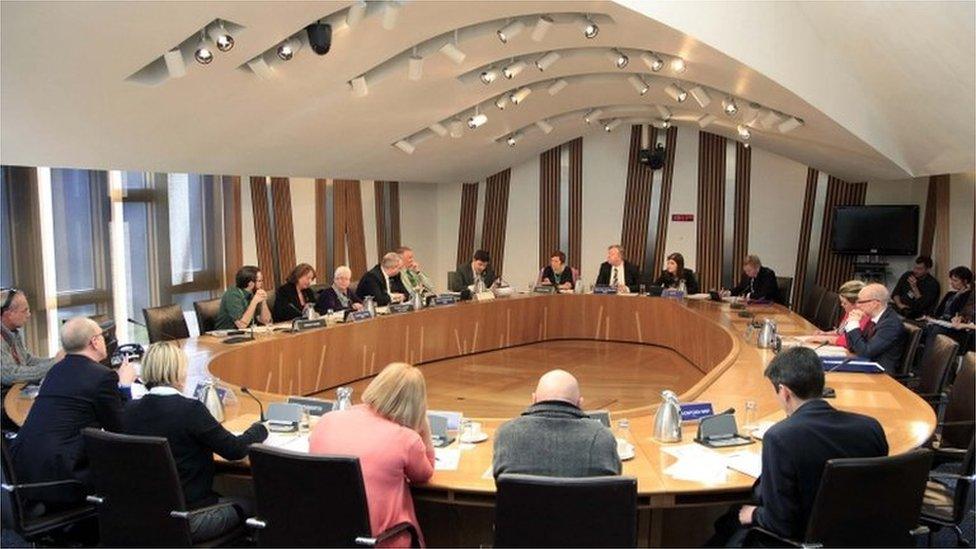
Business leaders and economists will give evidence at the Scottish Parliament
Scotland's fishing industry would be "unleashed" after Brexit allowing it to show "world leadership", MSPs at Holyrood have been told.
Bertie Armstrong, of the Scottish Fishermen's Federation, outlined the view during a meeting of the European and External Relations Committee.
His evidence was given along with 10 other financial and business experts.
Alastair Sim, of Universities Scotland, expressed concerns for the education sector once the UK leaves the EU.
The Scottish Parliament committee held its special summer session following the 23 June referendum which resulted in the UK voting by 52% to 48% to end its membership of the European Union.
The electorate in Scotland voted by 62% to 38% to remain.
Mr Armstrong and Mr Sim were joined by;
Clare Slipper, parliamentary officer, National Farmers Union Scotland
David Frost, chief executive, Scotch Whisky Association
Gordon Dewar, chief executive, Edinburgh Airport
Hugh Chater, director of Banking, Virgin Money
James Withers representing Scotland's food and drink sector
The committee also heard from Graeme Roy, director of the Fraser of Allander Institute; Colin Borland, from the Federation of Small Business Scotland, and Kenny Richmond, of Scottish Enterprise.
Scotland's fishing industry was a vocal backer of Brexit and Mr Armstrong made it clear to the committee that there would be opportunities for his sector.
He said: "One of the benefits that will exist is at last we can stop focusing on a bizarrely bureaucratic process and start focusing on outcome, which in our case would be fishing opportunity. That would be no small change."
'Whacking great opportunity'
However, Mr Armstrong said he was worried that because fishing accounted for less that a 0.5% of GDP it would be used as a "bargaining chip" in negotiations.
He explained: "The Belgian fleet, the Netherlands fleet, the Danish fleet has got very used to catching almost all of their fish in our EEZ [Exclusive Economic Zone, external] over a period of 40 years.
"They will therefore use that in negotiation. Of course as a matter of observation and the bit that slightly frightens us is that we have got used to this unusual depressed, deprived, position we are now in that we shouldn't be in if we had the managing partner status in our EEZ."
Mr Armstrong detailed what he saw as future opportunities by saying: "And I emphasise again - this is Scottish jobs, this is increasing our economic activity in areas that really need it and a potential for world leadership, and I don't think that is an over emphasis - this is a whacking great opportunity for Scotland."
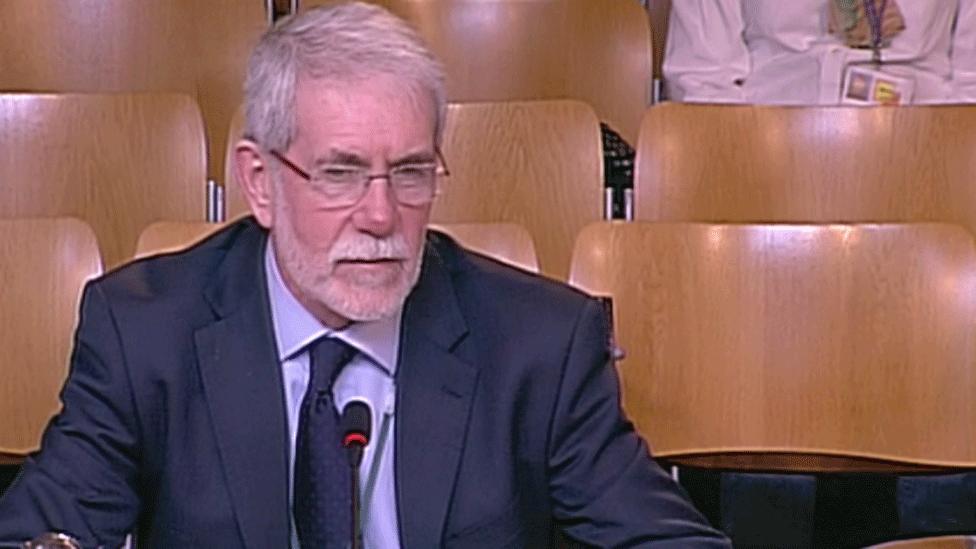
Bertie Armstrong gave evidence, along with 10 others, to a special meeting of Holyrood's European and External Relations Committee
The education sector has voiced concerns over the Brexit vote and Mr Sim told the committee that the "important thing" now was getting the outcome "right".
He said: "It is vastly important that whatever future relationship we craft with the European Union it is one that maintains the movement of talent and the movement of ideas across boundaries.
"There is a process that needs to be in train to set out our negotiating objectives that will maintain that as best as possible.
"For the moment we rely on the continuing benefits of our continuing membership of the European Union which is incredibly important for European students and European researchers.
"But we do need to be moving into a phase where we need to actually start to understand whether the UK government is setting priorities for the future relationship with the EU that will support our further success."
Scottish exports to the EU
The Scottish Parliament's information centre put together a briefing on the implications for Scotland of the UK's decision to leave the EU.
It was published as part of the meeting papers, external.
It underlined that Scottish exports to the EU were worth £11.56bn in 2014, and had been growing since 2005. However, they have been falling as a proportion of total exports, now making up 42% of total international exports.
It also added that the 4,600 business sites in Scotland owned from elsewhere in the EU add £15.8bn to the Scottish economy each year, with Scotland having the highest percentage of Gross Value Added from European-owned countries of any region of the UK.
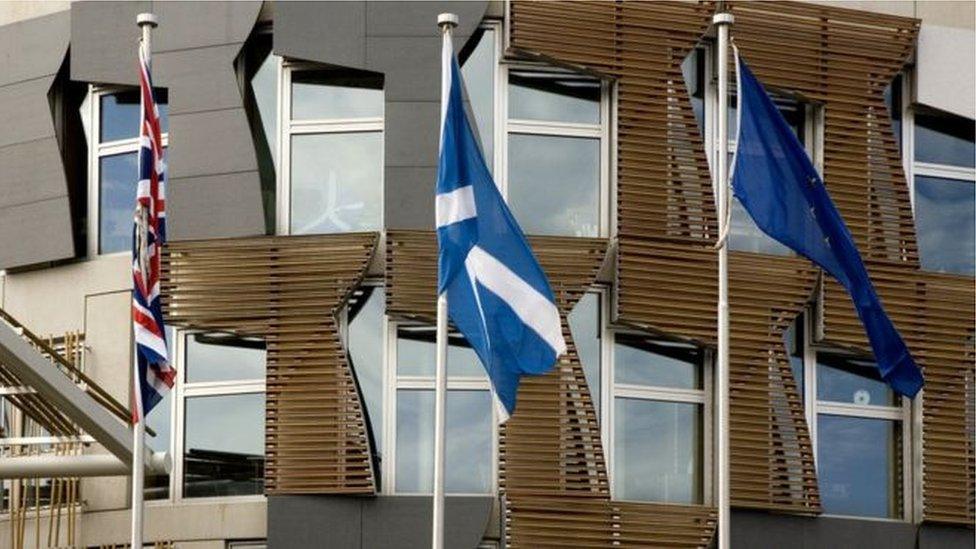
The committee is being recalled despite the Scottish Parliament being in recess for the summer
Ahead of the committee meeting, the Fraser of Allander Institute published its early thoughts on Brexit.
It said a prolonged period of "economic uncertainty and financial volatility" was unavoidable.
It warned this would carry risks for investment, household incomes and jobs.
The institute has revised down growth forecasts it made before the EU vote.
It now expects growth of just 0.9% in 2016 (down by 0.5%), 0.5% in 2017 (down by 1.4%), and 0.7% in 2018 (down by 1.3%).
Its report said that while growth was likely to remain positive on an annual basis, a short "technical recession" - two consecutive quarters of falling output - was "highly possible" within the next three years.
- Published27 July 2016
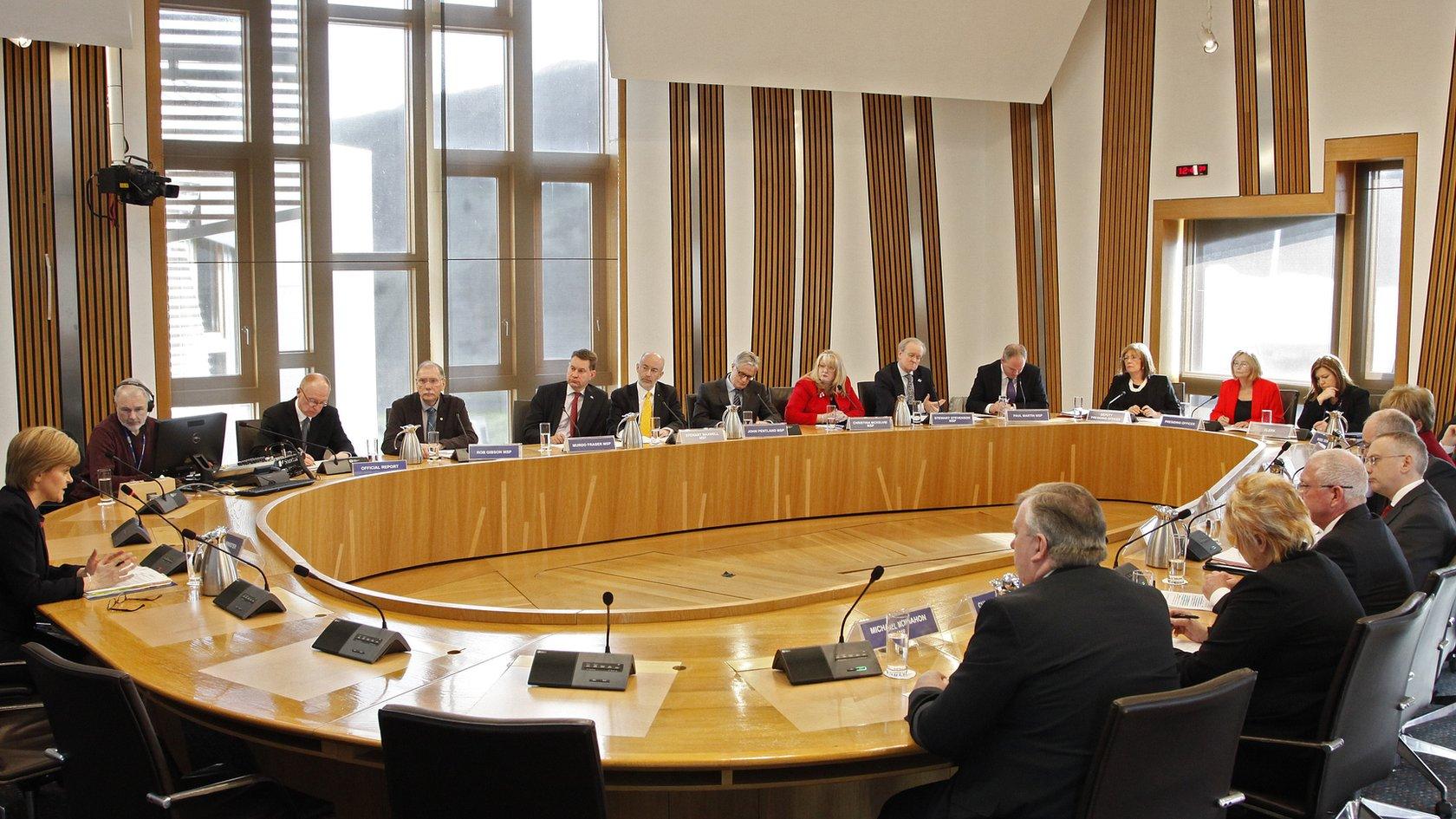
- Published28 July 2016

- Published27 July 2016
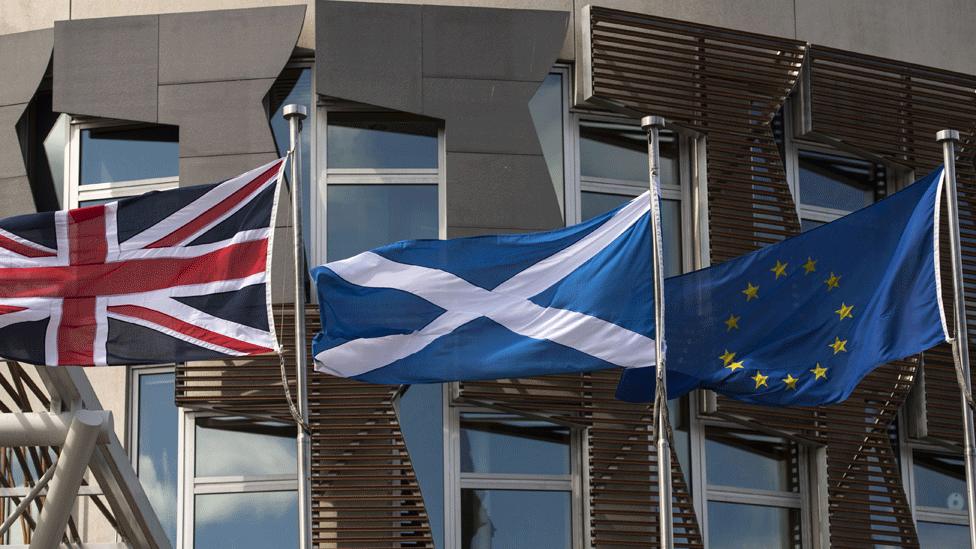
- Published25 July 2016
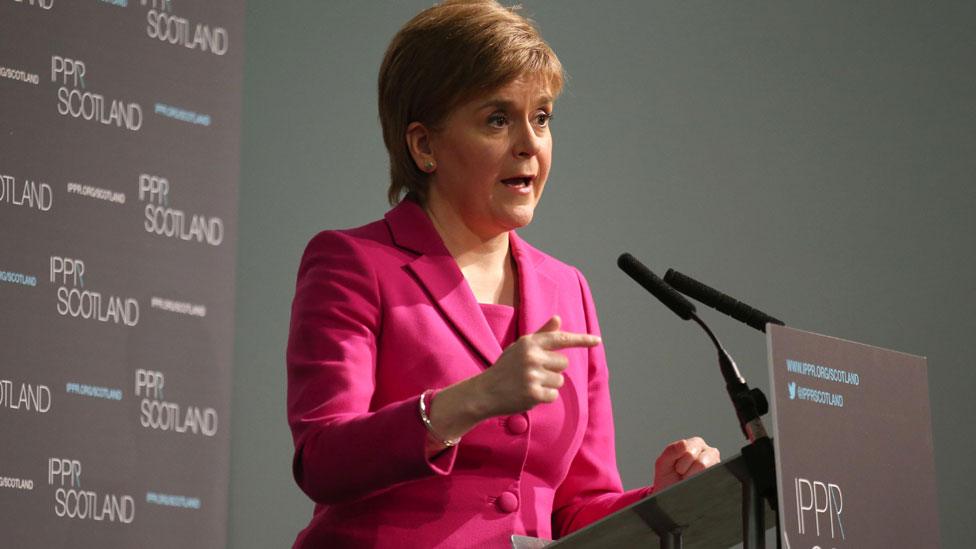
- Published24 July 2016

- Published24 July 2016
